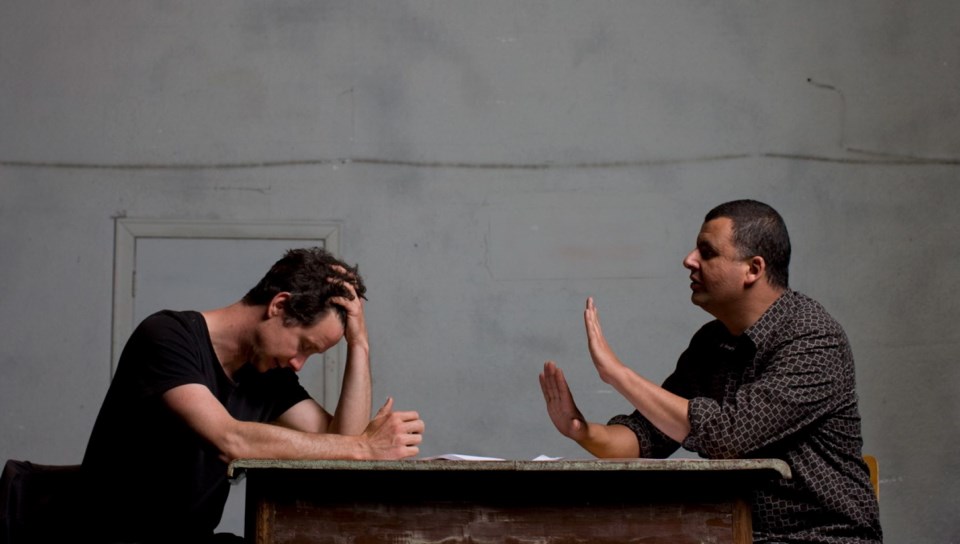Winners and Losers
Where: 8 p.m., Friday and Saturday
Where: Metro Studio
Tickets: $18, $20 ticketrocket.org or 250 590 6291
Is the Victoria Bug Zoo (home to hairy tarantulas and glow-in-the-dark scorpions) a winner or a loser?
How about Ladysmith native Pamela Anderson? The Fairmont Empress Hotel? The Legislature?
In their acclaimed play Winners and Losers, theatre provocateurs Marcus Youssef and Jamie Long promise to examine these weighty questions and more.
Rating the ineffable delights of the bug zoo and Ms. Anderson reflects Youssef and Long’s goal of inserting local content in their 2012 play. The show revolves around a peculiar game they invented.
The pair sit at a table and argue about whether seemingly random stuff is a “winner” or a “loser.”
The topics are diverse: Tom Cruise, farmer’s markets, the Occupy movement and druids. When one or the other actor rings a bell, they jump to the next topic.
Eventually, Winners and Losers becomes uncomfortably personal. That’s because Youssef and Long — close friends in real life — start discussing whether the other is a loser or a winner.
Long is co-artistic director of Vancouver’s Replacement Theatre, which has a history of conceptual work.
Youssef is artistic director of Vancouver’s Neworld Theatre, which typically examines social issues. Winners and Losers — a commercially and critically successful play that they’ve performed in eight countries — is a melding of these sensibilities.
The play was hatched after Youssef and Long received a “kind of weird email” from a mutual friend. The sender talked about having discovered a wonderful way to fulfil one’s spiritual and career goals. And then he asked each email recipient to send him $100.
It was a pyramid scheme. The crassness of the pitch surprised the pair, since the emailer — “a guy we love a lot” — had a seemingly enviable life with a terrific wife, kids and home.
“We thought: ‘Wow, what is it about his life that makes him feel so unfulfilled?’” Youssef said.
Intrigued by the email, which they believed is indicative of something bigger that exists within society, Long and Youssef at first tried to create a show about pyramid schemes. Then they switched course, deciding the “winner versus loser” premise worked better.
They started by recording their improvisations, then studying the transcriptions. “We realized they had a lot of punch,” Long said.
Winners and Losers makes satirical commentary on a Western culture in which everything seemingly gets a thumbs-up or thumbs-down.
“It feels like so many of our systems. You just have to think of people debating in parliament to go: The only paradigm operating there is ‘winner versus loser,’ ” Youssef said.
The irony in writing such a play is that the pair believe the winner/loser philosophy is absurd when it comes to assessing life’s complexities. That’s especially true for the arts, says Long, who dislikes shows such as American Idol and even the practice of dispensing awards for theatre and other art forms.
Youssef and Long admit the section of the show in which they rate each other has, on occasion, almost reduced them to tears. Long says he felt this way when delivering hypothetical arguments as to why Youssef was a loser, which “is just something you never do to your friends.”
Added Youssef: “There’s definitely been times when I’ve gone, holy f---, I don’t know if I can keep on doing this. I think it has changed our friendship. I think it’s actually made it stronger. But sometimes it’s been pretty intense and hard.”
After a time, Youssef and Long were able to distance themselves while performing the play, which is 80 per cent scripted and 20 per cent improvised.
“It’s kind of a crazy thing that we’re doing,” Youssef added. “It has a dangerous edge to it. But I think we’re on top of it now.”
